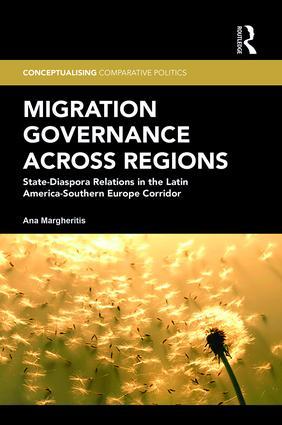
Zustellung: Do, 12.06. - Di, 17.06.
Versand in 2 Wochen
VersandkostenfreiBestellen & in Filiale abholen:
Migration policies are rarely effective. From border controls to guest worker programs to immigrant integration measures, there are plenty of examples of the gaps between intended effects and unexpected, undesirable outcomes. In Latin America, very little is known about the concrete impact of state outreach efforts and what factors might make these policies sustainable and effective in the long run. Building upon field research done in Ecuador, Uruguay, Mexico, Argentina, and Brazil, Ana Margheritis explains the timing, motivations, characteristics, and implications of emigration policies implemented by each country and the migrant views in specific localities in Europe.
Inhaltsverzeichnis
1. Introduction: States Courting Diasporas 2. State-led Transnationalism as Governance 3. Emigration Policies in Latin America 4. Ecuador: Cultivating Links at Home and Abroad 5. Uruguay: From Denial to Formal Overtures 6. Argentina: Selective and Intermittent Flirting 7. Brazil: Courting without Being Noticed 8. Ecuadorians and Argentines in Spain and Italy: The Political Activation of Emigrants 9. Mexico: Model or Outlier? 10. Conclusions
Mehr aus dieser Reihe
Produktdetails
Erscheinungsdatum
22. Dezember 2015
Sprache
englisch
Seitenanzahl
204
Reihe
Conceptualising Comparative Politics
Autor/Autorin
Ana Margheritis
Verlag/Hersteller
Produktart
gebunden
Gewicht
431 g
Größe (L/B/H)
231/157/18 mm
ISBN
9781138909649
Entdecken Sie mehr
Bewertungen
0 Bewertungen
Es wurden noch keine Bewertungen abgegeben. Schreiben Sie die erste Bewertung zu "Migration Governance across Regions" und helfen Sie damit anderen bei der Kaufentscheidung.


















